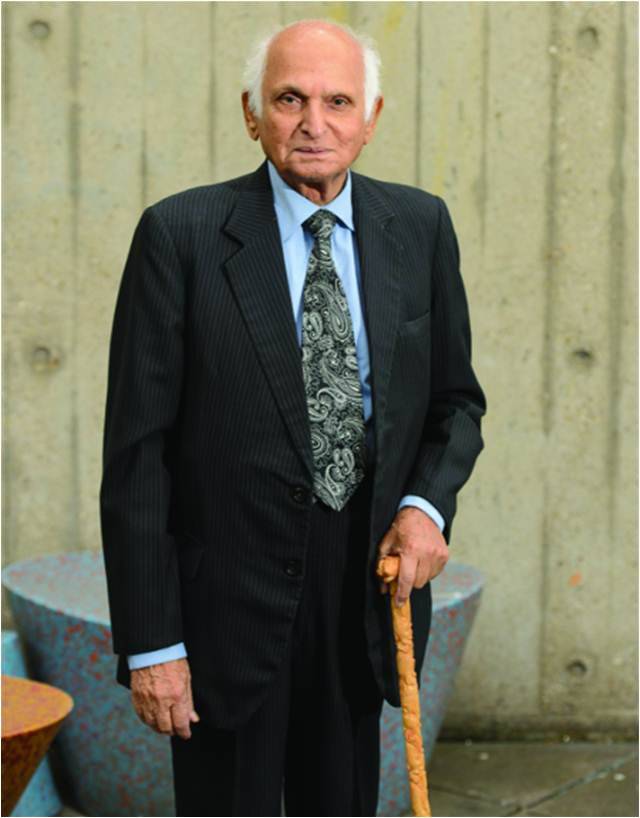This year in summers, when the cuckoo would call in its melodious voice from the branches and leaves of hundred years old trees of the Lawrence Gardens, it wouldn't find its old friend Intizar Hussain looking up and smiling from the walking track. The cuckoo has lost its last friend in the city. Schehrzade's worthy successor, teller of fascinating tales and the grand old man of Urdu is no more. Intizar Hussain, last of the greatest Urdu writers who breathed his last today in Lahore has left behind great sadness.
Born in 1923 in Dibai, Bulandshehr, UP, British India, Intizar Hussain spent his early years in the peace and tranquility of his native town. He migrated to Pakistan in 1947 following Partition and settled down in Lahore. Within a few years he acquired an MA in Urdu, took journalism as a profession and started writing short stories. Over the years he emerged as a very distinguished writer with a distinct style and approach. His craft evolved with the time, transcending geographical boundaries and ideological limitations, creating a literature with a universal appeal.
Intizar Hussain was highly conscious of the social and political realities with a deep insight in human nature and circumstances. He was a first hand witness of Pakistan's true history and expressed it in a humanistic angle in many of his stories and novels. The most prominent shade of his fiction is the nostalgia for his native land and a long lost culture. He laments the demise of an era, a culture and a way of life. Every great story of his has a nostalgic colour. There is also a very strong sense of belonging with the thousands of years of culture and history of his native northern India. This pluralistic and open approach led him to write timeless literature and earned him great respect among the intellectual literary circles and general readers in both India and Pakistan.
Intizar Hussain's philosophy is that one cannot understand the present or future without having a meaningful understanding of the past. To seek answers of the questions concerning contemporary issues, he explores the medieval philosophy and the tradition of Dastaan. Consequently, many ancient epics, mythology, and traditional legends of Arabic, Urdu and Hindi find a reincarnation in Intizar Hussain's stories. For example, in a short story Mornama, he finds answer to the puzzle of atomic arms race between India and Pakistan in a scene from the epic Mahabharat. Intizar Hussain's notable works includes novels Basti, Aagay Samandar Hai and short story collections Khaimay se Door, Kachway, Akhri Admi, Khali Pinjra, Shehr-e-Afsos and Schehrzade ke Naam.

I have had the great pleasure of listening to Intizar Sahab in many sessions at different literary events. Since the literary festival culture was started in Pakistan a few years back, Intizar Hussain was the highlight of every literary event. He was a fascinating speaker and used to talk like a story teller. A frail old man of medium stature, Intizar Hussain was always dressed in English suit and a tie and was an extremely graceful person. Apart from his sweet native dialect of fine Urdu, he was very soft spoken. There used to be a perpetual smile on his face. I had the good fortune to get his classic novel Basti autographed on 13th December 2015, less than two months ago. When I think of Intizar Hussain, one lasting image in my mind is from Faiz Festival in November last year. Him sitting on a chair beside the stage of Alhamra Hall waiting for the next session to start and the great poetess Fehmida Riaz sitting on the stairs just like a disciple sits in front of a guru. Both legends were talking and laughing and it was a delight to watch them.
Rest in peace Intizar Hussain. May the story never end…






